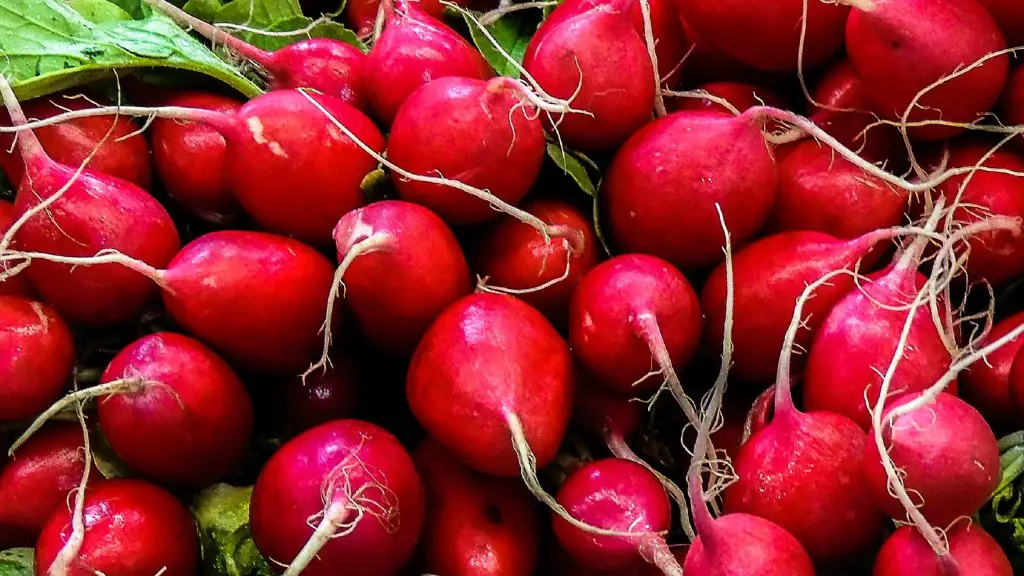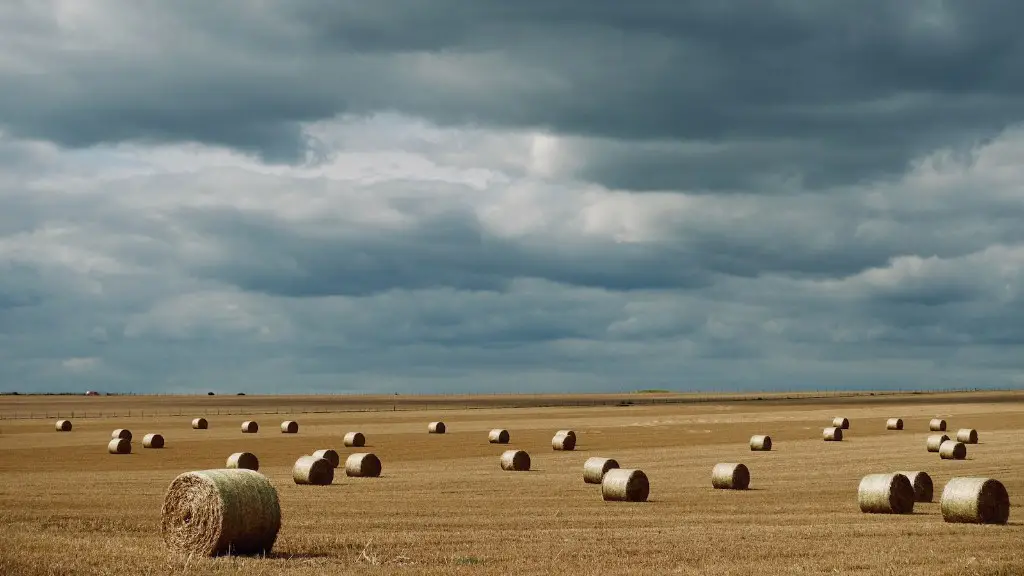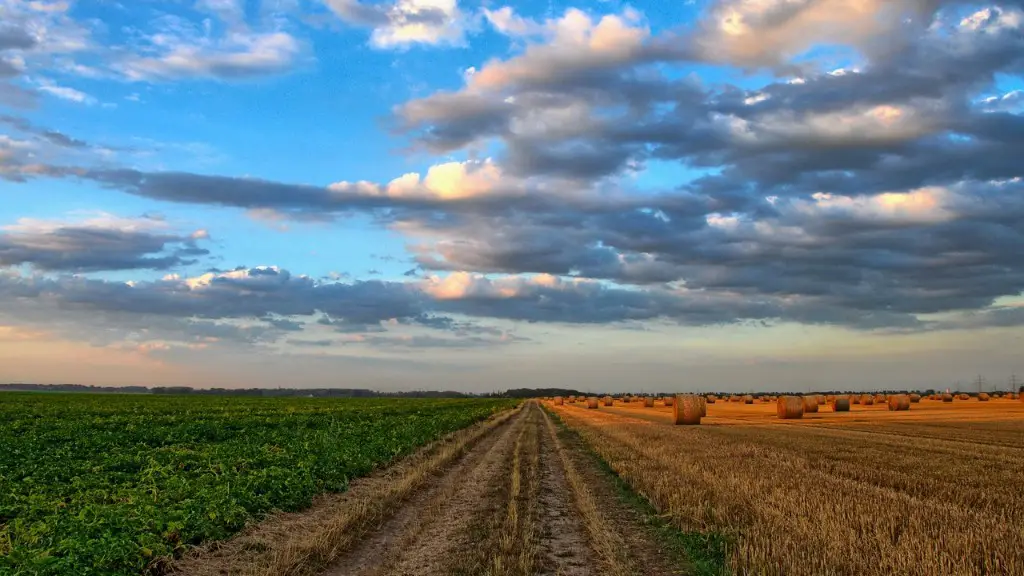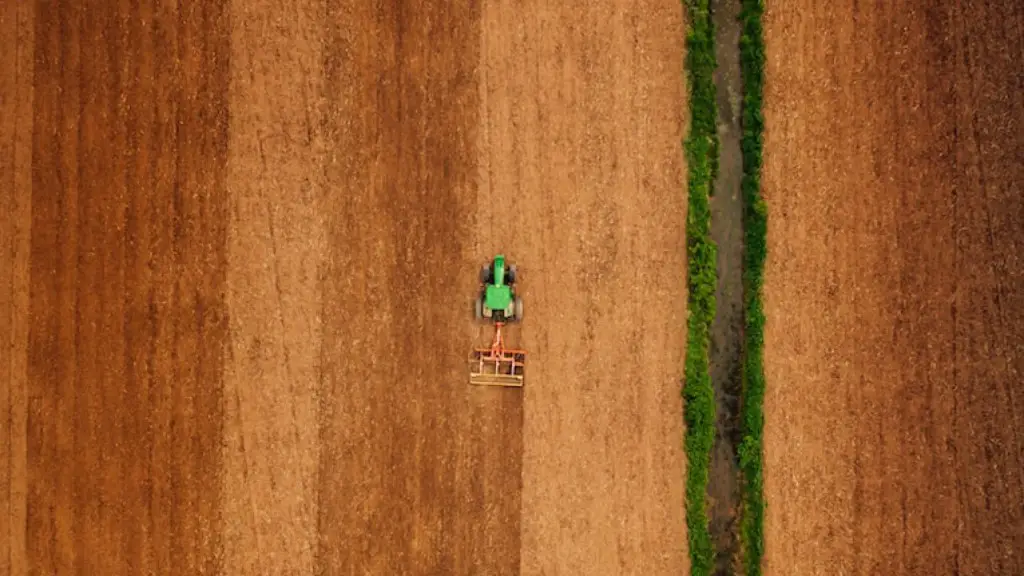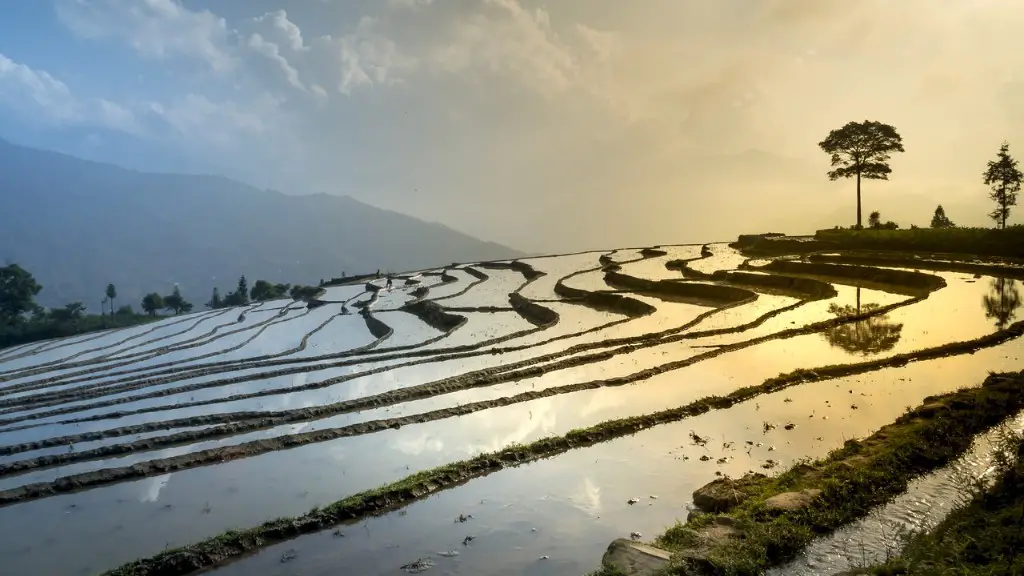Agriculture is the science and art of cultivating plants and livestock. Agriculture was the key development in the rise of sedentary human civilization, whereby farming of domesticated species created food surpluses that enabled people to live in cities. The history of agriculture began thousands of years ago. After the Industrial Revolution, agriculture was transformed by new scientific discoveries and technologies, resulting in the Green Revolution.
Agriculture is the process of producing food, feed, fiber and other desired products by the cultivation of certain plants and the raising of domesticated animals.
What does agricultural do?
Agriculture is the cultivating of land for the purpose of raising crops or keeping animals. This can include tilling the soil, planting seeds, and harvesting the crops. It can also involve caring for the animals, such as feeding and managing them.
Agriculture is vital to the global economy – it employs over a billion people and generates $13 trillion dollars worth of food annually. However, it also has a significant environmental impact. Pasture and cropland occupy around 50 percent of the Earth’s habitable land, and agriculture is a major source of greenhouse gas emissions and water pollution. Therefore, it is important to find ways to make agriculture more sustainable.
What are 4 needed skills in agriculture
Key farmer skills include problem-solving, interpersonal, farm management and organizational skills. These skills are important for farmers to possess in order to be successful in their profession. Problem-solving skills are important for farmers to be able to identify and solve problems that may arise on the farm. Interpersonal skills are important for farmers to be able to communicate and work well with others. Farm management skills are important for farmers to be able to manage and operate a farm effectively. Organizational skills are important for farmers to be able to keep the farm organized and running smoothly.
A career in cropping systems engineering, plant specialist, crop inspector, or research scientist can be very rewarding. You can work in educational institutions, government, or industry, and help to improve the quality of crops and plant life. You can also pursue a career in plant breeding, plant propagation, crop production, and genetic engineering.
Is agriculture a good major?
If you’re thinking about pursuing a degree in agriculture, rest assured that it can be a very rewarding experience. Not only will you learn about the ins and outs of the agriculture industry, but you’ll also gain valuable skills that can be applied to many different career paths. So if you’re wondering if agriculture is a good major to pursue, the answer is a resounding yes!
This job is a great opportunity for someone who is looking to enter the agricultural field and wants to apply their engineering knowledge. The job is best suited for those who have a keen enthusiasm for the agricultural setting.
What are 3 benefits of agriculture?
Agriculture is vital for human survival. We depend on agriculture for food, shelter, and clothing. Raw materials such as crops for food, silk for cloth, and wood for shelter, all come from agriculture. without agriculture, we would not be able to survive.
Farming is a great way to get healthy and fit. It’s challenging and stimulating work that can provide a good source of income in rural areas. Farm work also helps develop younger generations by teaching them important skills. Plus, farming can help the environment thrive by providing healthy food and habitats for wildlife.
What is the most important in agriculture
The agriculture industry is vital to the world’s food supply. Without agriculture, we would not be able to grow the crops and raise the livestock necessary to feed the world’s population. The agriculture industry is thus responsible for ensuring that people have access to the food they need to survive.
Different types of farming are used to produce different types of food and products. Dairy farming is used to produce milk and other dairy products, while commercial farming is used to grow crops or animals for sale. Plantation farming is used to grow crops such as coffee or cocoa, while commercial grain farming is used to grow crops such as wheat or corn. Commercial mixed farming is used to grow both crops and animals, while primitive subsistence farming is used to grow food for the farmer and their family. Intensive subsistence farming is used to grow crops or animals in a very small area, using a lot of labor and resources.
What are the ten careers in agriculture?
Career descriptions can be found in a variety of sources, including job postings, job descriptions, and career websites. Agricultural Economist, Agricultural Engineer, Agronomist, Animal Nutritionist, Animal Physiologist, Aquaculturist, Biochemist, and Biometrician are just a few of the many possible career paths available to someone with an interest in agriculture. With so many options available, it is important to research each one to determine which is the best fit for your skills, interests, and goals.
Farms come in all shapes and sizes and there are many different types of farming to suit different climates and needs. Here are 15 different types of farms:
1. Aquaculture Farming: This type of farming is focused on raising aquatic animals or plants for food or other purposes.
2. Cooperative Farming: This is where farmers work together to pool resources and labor in order to improve efficiency and output.
3. Hay Farming: Hay farms are usually devoted to growing grass or other plants that are then used as fodder for livestock.
4. Organic Farming: Organic farms operate without the use of synthetic chemicals, pesticides, or other artificial inputs.
5. Urban Farming: Urban farms are located in, you guessed it, urban areas! These farms often use innovative growing methods to make the most of limited space.
6. Nomadic Farming: This type of farming is often seen in cultures where people move around frequently, such as some pastoral societies. Nomadic farmers usually travel with their livestock, moving to new grazing areas as needed.
7. Sedentary Farming: The opposite of nomadic farming, sedentary farming is when farmers stay in one place for long periods of time. This is the most common type of
Is agriculture a high paying job
Agriculture is a versatile field that can offer many job opportunities for youngster. It is a good idea to look into the many agriculture jobs that are available in order to get a good position that offers a good salary and many other benefits.
The course is designed to give students a strong foundation in the basics of agriculture, and it is not particularly difficult. However, it is important to note that the course is very hands-on, and requires a lot of practical work.
Can you make a living in agriculture?
Agriculture is a very great opportunity for one to make an income either on a large or small scale. There are now different ways, you can earn from agriculture without owning a farm or even physically been present on the farm.
Agriculture is a vital industry that provides essential products and materials for society. Agricultural jobs are critical to ensuring a safe and abundant food supply, and they provide other important products and materials that we use every day. Because of the importance of agriculture, agricultural jobs are well paid. Agricultural workers have the opportunity to earn high salaries that reflect the significance of their work.
Conclusion
Agriculture is the process of raising crops and livestock for human consumption. Agriculture involves the use of land, water, and other resources to produce food, fuel, and other products.
The agricultural industry is responsible for a great deal of the food that we consume on a daily basis. Without agriculture, we would not have the same access to fruits, vegetables, meat, and other necessary food items. The agricultural industry is also responsible for many jobs, both in the field and in related industries. Agriculture is a vital part of our economy and our way of life.

